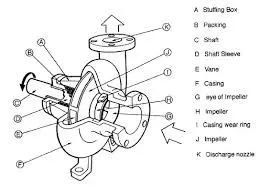Mobile:+86-311-808-126-83
Email:info@ydcastings.com
quality aluminum casting
Quality Aluminum Casting A Closer Look
Aluminum casting has become a cornerstone of various industries due to its remarkable properties and versatility. The growing demand for high-quality aluminum casting is driven by its lightweight nature, excellent corrosion resistance, and the ability to create complex shapes. The production of aluminum castings involves intricate processes that require stringent quality control measures to ensure that the final products meet the necessary standards and specifications.
Understanding Aluminum Casting
Aluminum casting involves pouring molten aluminum into a mold to create specific shapes. This process can be accomplished through various techniques, including sand casting, die casting, and investment casting. Each method has its specific applications depending on the complexity of the part, the volume of production required, and the desired surface finish.
One of the primary advantages of aluminum casting is its ability to produce lightweight components that maintain strength and durability. This characteristic is vital for industries such as automotive, aerospace, and consumer goods, where reducing weight can lead to enhanced performance and fuel efficiency. The unique properties of aluminum make it an ideal material for components that require high strength-to-weight ratios.
The Importance of Quality in Aluminum Casting
Achieving high-quality aluminum castings is crucial for several reasons. First and foremost, quality directly impacts the performance and longevity of the final product. Defects in casting can lead to failures in critical applications, which can result in safety hazards and increased costs. Therefore, manufacturers prioritize quality at every stage of the casting process.
Quality aluminum casting begins with the selection of raw materials. The purity of the aluminum alloy is essential, as impurities can weaken the material and affect its properties. Reputable foundries often conduct thorough analyses of their raw materials to ensure they meet stringent quality standards.
Quality Control Measures in Aluminum Casting
quality aluminum casting

Once the casting process begins, several quality control measures are employed to ensure that the final product meets specifications. These measures include
1. Temperature Monitoring Molten aluminum must be maintained at precise temperatures during casting to avoid issues such as oxidation and gas entrapment, which can lead to defects.
2. Mold Design and Maintenance The design of the mold is critical in determining the quality of the casting. Proper maintenance of the molds is also essential to prevent defects caused by wear and tear.
3. Inspection and Testing Post-casting inspections play a vital role in determining the quality of aluminum castings. Techniques such as X-ray inspection, ultrasonic testing, and pressure testing are used to identify any internal or external defects.
4. Process Optimization Continuous improvement efforts, such as refining casting techniques and investing in modern technology, help to enhance the quality of aluminum castings. Innovative methods like computer numerical control (CNC) machining can further improve the precision and quality of the final product.
5. Compliance with Standards Adhering to industry standards and regulations, such as ASTM (American Society for Testing and Materials) or ISO (International Organization for Standardization), is crucial for maintaining quality. Certification in these standards often indicates a commitment to quality assurance within a foundry.
Conclusion
The importance of quality in aluminum casting cannot be overstated. With the increasing reliance on aluminum components in critical applications, manufacturers must adopt rigorous quality control measures to ensure that their products meet the highest standards. By focusing on quality throughout the casting process — from raw material selection to final inspection — manufacturers can produce reliable, durable aluminum castings that meet the evolving demands of various industries. As technology continues to advance and the industry grows, the emphasis on quality will remain essential for achieving success in aluminum casting.
-
Why Should You Invest in Superior Pump Castings for Your Equipment?NewsJun.09,2025
-
Unlock Performance Potential with Stainless Impellers and Aluminum End CapsNewsJun.09,2025
-
Revolutionize Your Machinery with Superior Cast Iron and Aluminum ComponentsNewsJun.09,2025
-
Revolutionize Fluid Dynamics with Premium Pump ComponentsNewsJun.09,2025
-
Optimizing Industrial Systems with Essential Valve ComponentsNewsJun.09,2025
-
Elevate Grid Efficiency with High-Precision Power CastingsNewsJun.09,2025











